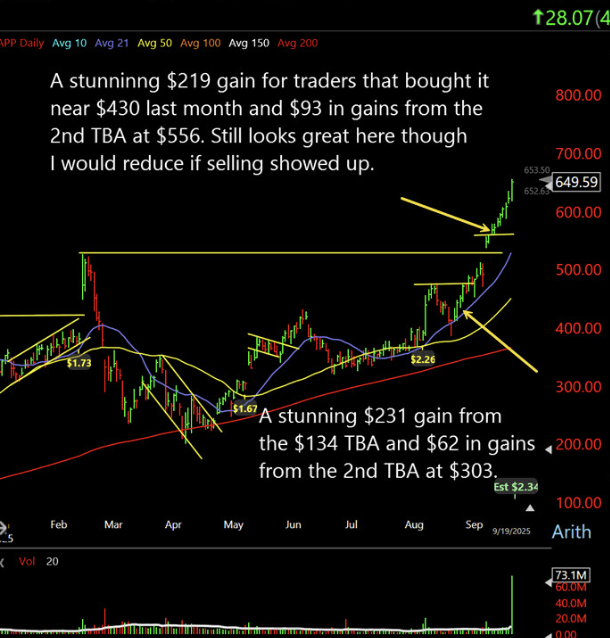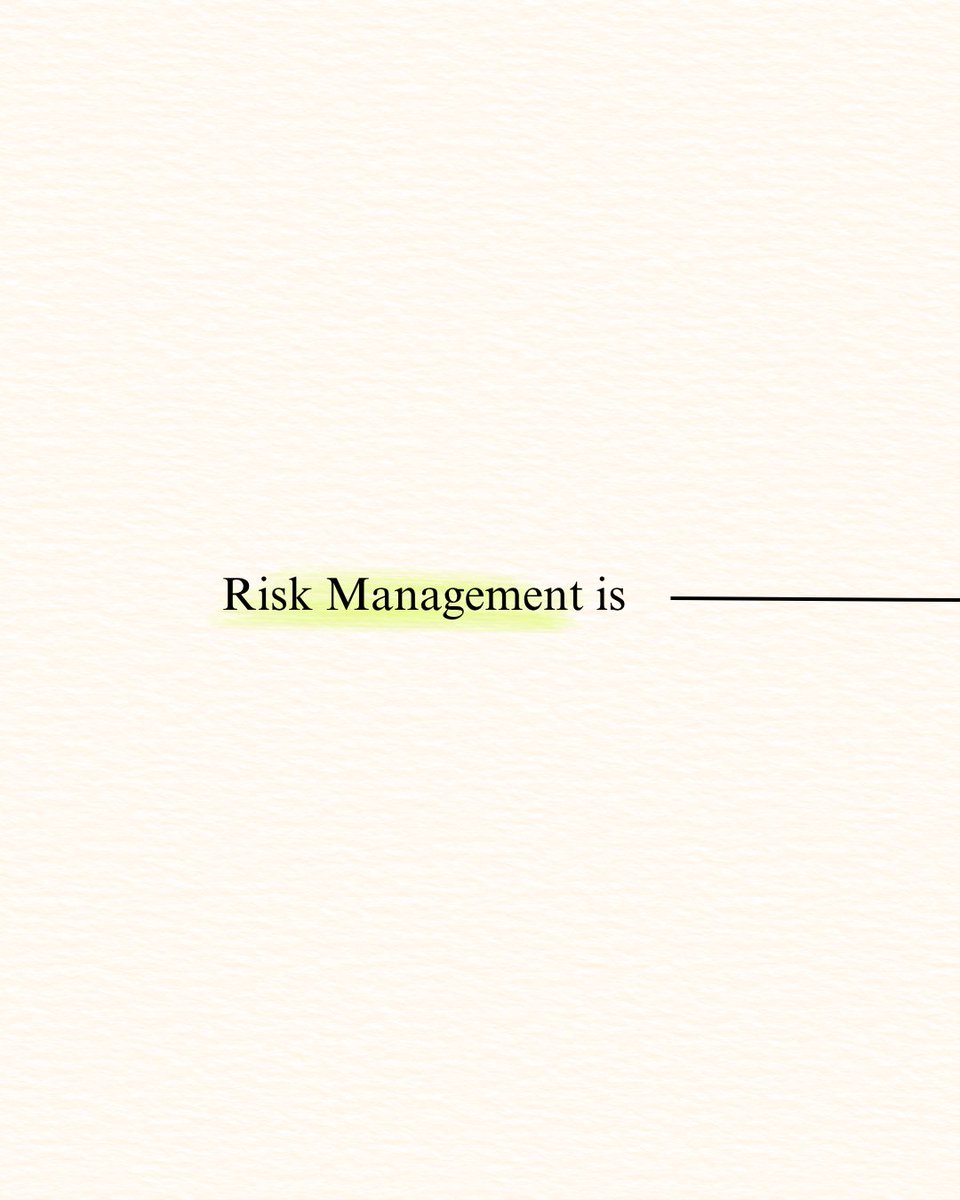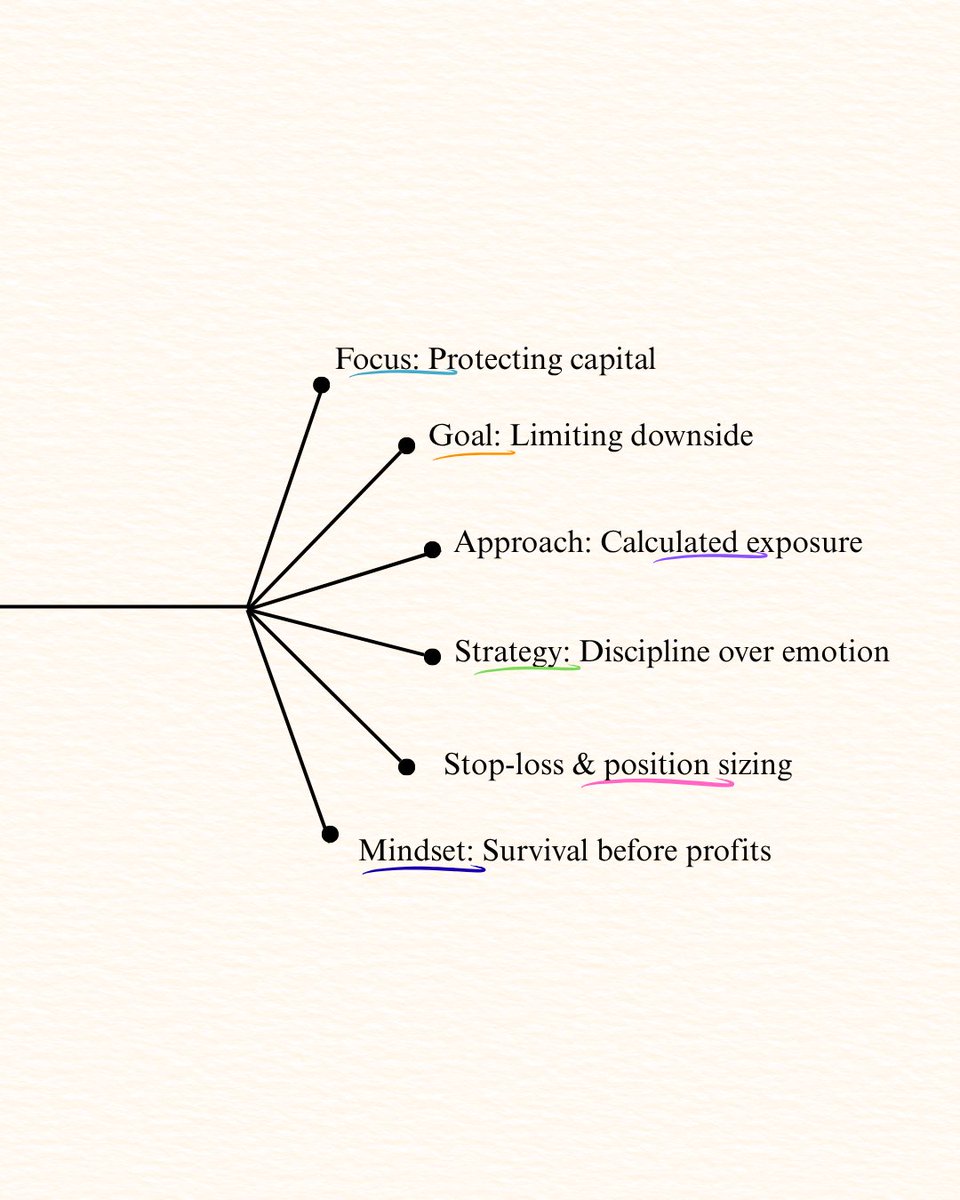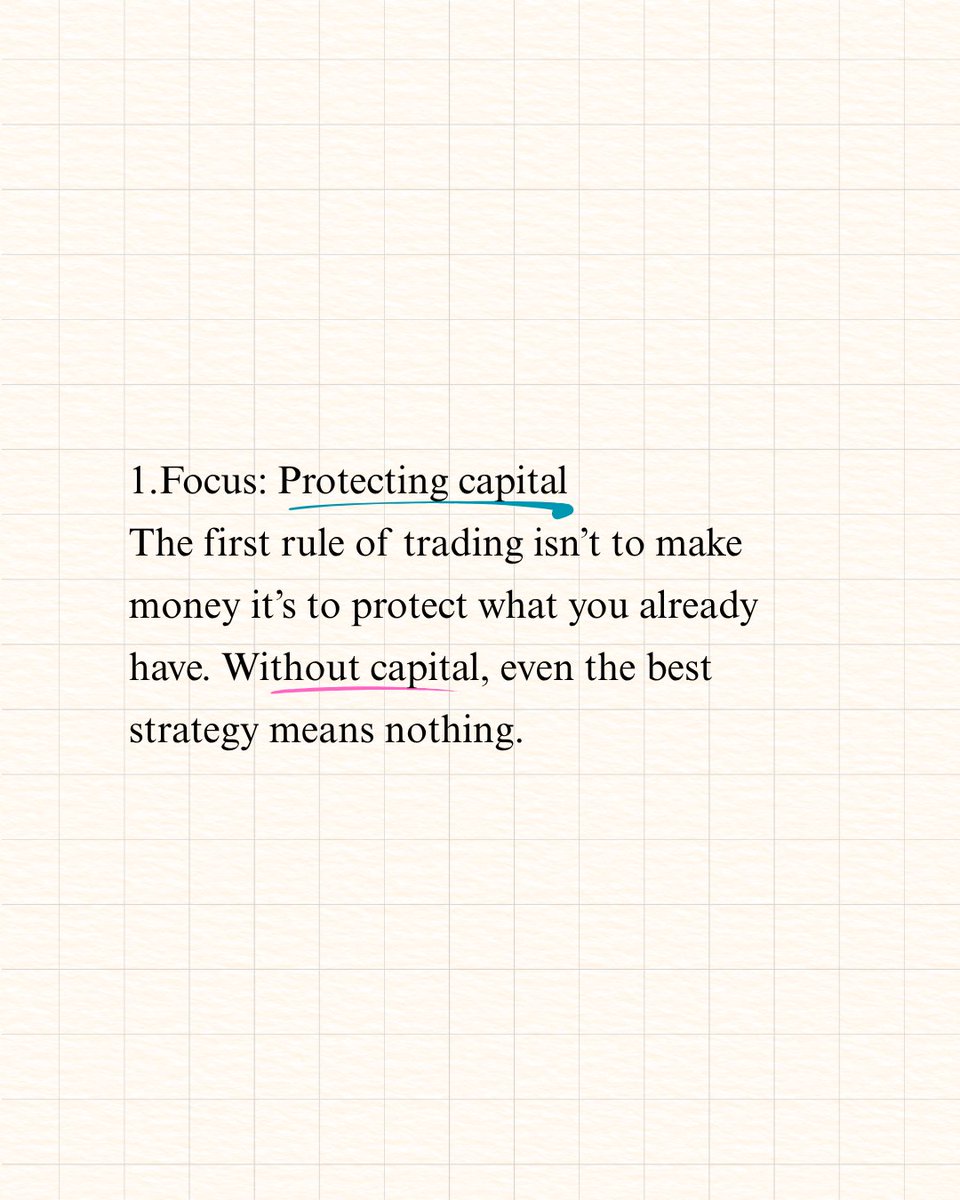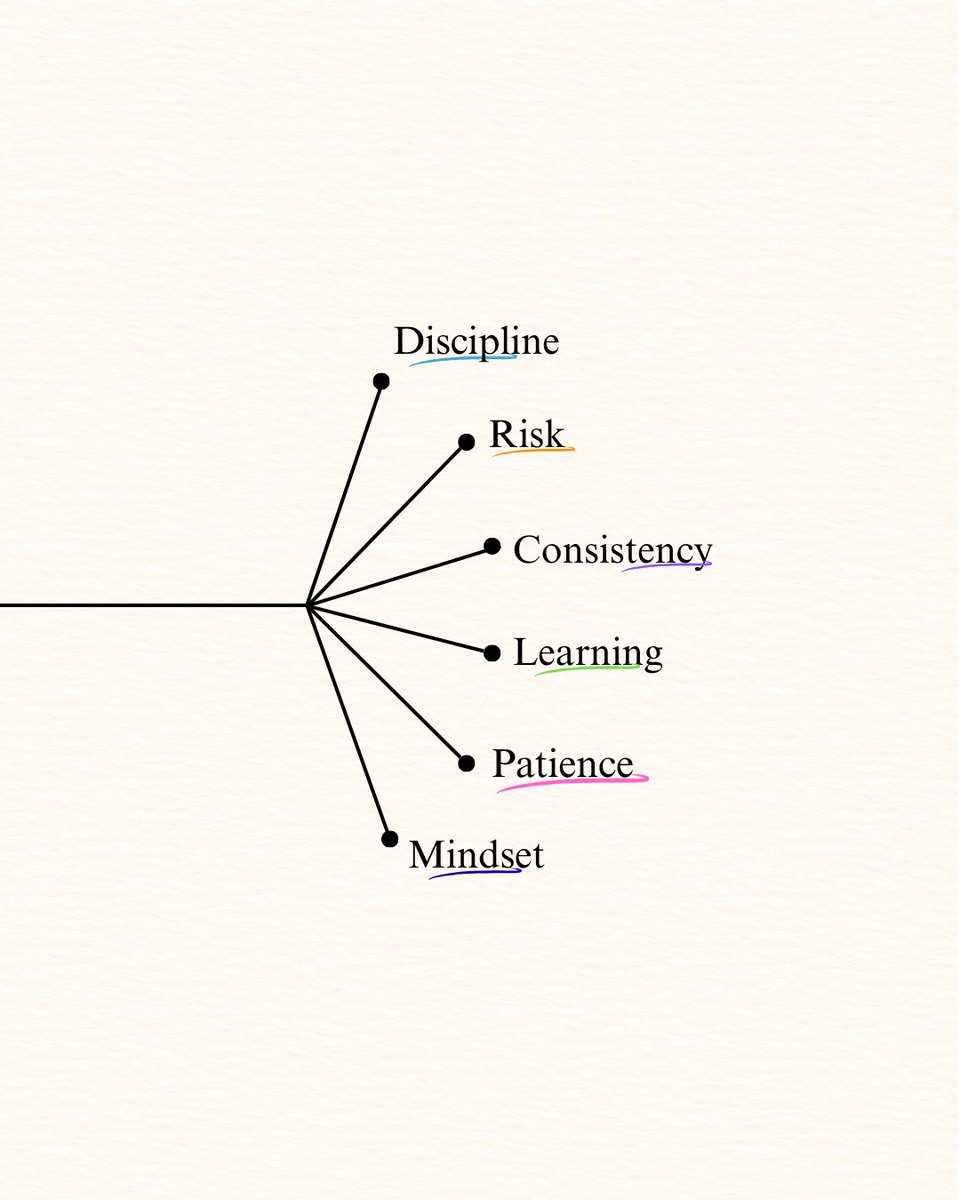Thread : An expensive lesson in Risk Managmenent 🧵
1) I would like to share my nerve wracking experience that forever imbibed in me the importance of risk management.
On Aug 2016, I lost -20L in a minute,what lessons I learnt from this incident & how did I bounce back !
1) I would like to share my nerve wracking experience that forever imbibed in me the importance of risk management.
On Aug 2016, I lost -20L in a minute,what lessons I learnt from this incident & how did I bounce back !

2) On August 2016, I suffered my highest intraday loss of 18 lacs due to a unknown risk.
I had shorted Just Dial 500 CE & was in a profit of 1.3 lacs at 3:19 pm. But to my dismay, at 3:20 pm, I saw a whopping loss of 18 lacs. In less than 60 seconds, I had lost over 20 lacs.
I had shorted Just Dial 500 CE & was in a profit of 1.3 lacs at 3:19 pm. But to my dismay, at 3:20 pm, I saw a whopping loss of 18 lacs. In less than 60 seconds, I had lost over 20 lacs.

3) I had huge qty in Just Dial CE but as my position was huge and Just Dial being an illiquid script. My position got squared from 0 to 10 Rs. I was in 1.3 L profit at 3.19 & 3:20 -18 L.
Lost almost 20 L in a min
Check my email to @zerodhaonline and their reply to understand

Lost almost 20 L in a min
Check my email to @zerodhaonline and their reply to understand


4) I was totally upset as I never thought that I could lose so much due to illiquidity.
There was nothing wrong with system or risk management but this was a risk which I was never aware.
This made me believe in risk management ever then before.
There was nothing wrong with system or risk management but this was a risk which I was never aware.
This made me believe in risk management ever then before.

5) That was quite a hard time for me and I started doubting my trading abilities.
I couldn’t digest the fact that in 60 seconds I lost -20 L due to illiqudity :(
This was the lowest point of my trading career and the future looked gloomy☹️ as confidence was badly shaken !
I couldn’t digest the fact that in 60 seconds I lost -20 L due to illiqudity :(
This was the lowest point of my trading career and the future looked gloomy☹️ as confidence was badly shaken !

6) Inspite of the huge loss, I kept following my system.
Market were kind🙏 & I made the highest ever profit in % term in next 3 months.
Almost 75L profit in 3 months from sept 2016 to Dec 2016.
Check the PnL attached !
Market were kind🙏 & I made the highest ever profit in % term in next 3 months.
Almost 75L profit in 3 months from sept 2016 to Dec 2016.
Check the PnL attached !

7) I thanked God for helping me sail through the painful drawdown.
After this incident, I vowed that I’ll never take the markets lightly and always manage my risk at all times.
After this incident, I vowed that I’ll never take the markets lightly and always manage my risk at all times.

8) On 21st Sept 2018, I had sold 330 PE overnight and YesBank opened 10% lower and closed the day at -33%. But I survived as I bought 320 put as protection.
If I had not bought 320 PE then would have lost 10 L
I managed overnight risk also after an expensive lesson in Just Dial

If I had not bought 320 PE then would have lost 10 L
I managed overnight risk also after an expensive lesson in Just Dial


9) Ms. Nirmala Sitaraman Candle
On 21st Sept 2019, BankNifty rallied almost 10% intraday with huge IV spike in calls.
I had 27200 CE sold and booked loss in that at 220. The same option was trading at 2230 few hours later.
Would have lost heavily if I had not managed my risk


On 21st Sept 2019, BankNifty rallied almost 10% intraday with huge IV spike in calls.
I had 27200 CE sold and booked loss in that at 220. The same option was trading at 2230 few hours later.
Would have lost heavily if I had not managed my risk



10) Demonetisation
- Surgical Strike
- Flash Crash in March 19
- Lower Circuit on index in March 20
Have survived all major black swans without any major loss.
After making huge losses at the start of my career, I have realised that good trading is all about managing risk.
- Surgical Strike
- Flash Crash in March 19
- Lower Circuit on index in March 20
Have survived all major black swans without any major loss.
After making huge losses at the start of my career, I have realised that good trading is all about managing risk.

11) I have been in drawdowns several times since then but never lost the convinction to follow my systems.
Drawdowns are inevitable for a trader.
We can only manage risk & follow our systems.
Never take markets lightly & never make a loss so big that affects you emotionally
Drawdowns are inevitable for a trader.
We can only manage risk & follow our systems.
Never take markets lightly & never make a loss so big that affects you emotionally

12) Consistent success in trading lies in effective management of risk & sticking to your system even through prolonged periods of drawdown. 

13)Rules I follow to manage Risk
- Never open any trade without knowing the initial risk ( R)
- Define PnL in terms of R
- Limit losses under 1 R and profits should be >1 R
- Never open any trade without knowing the initial risk ( R)
- Define PnL in terms of R
- Limit losses under 1 R and profits should be >1 R

14) Read this book
Van Tharp’s Definitive guide to position sizing
It’s a great book risk management & position sizing
amazon.com/Definitive-Gui…
Van Tharp’s Definitive guide to position sizing
It’s a great book risk management & position sizing
amazon.com/Definitive-Gui…
15)Reason for this thread :
-Focus on risk management & types of risks
-Backtest &Follow your systems with conviction
-Don’t be afraid of losses & drawdown as no system can make money all the time
Goodluck on your Trading Journey !
-End
-Focus on risk management & types of risks
-Backtest &Follow your systems with conviction
-Don’t be afraid of losses & drawdown as no system can make money all the time
Goodluck on your Trading Journey !
-End

• • •
Missing some Tweet in this thread? You can try to
force a refresh


